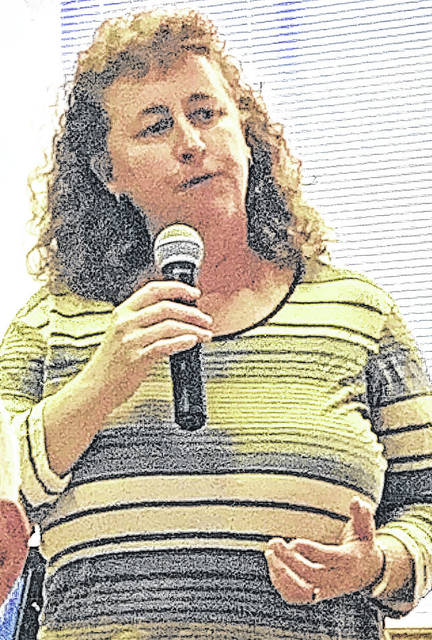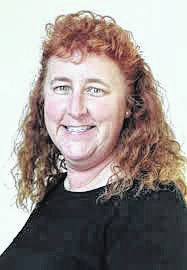LAURINBURG — In today’s society, it’s uncommon for people to process their meat, instead opting to buy from grocery stores or from smaller farms at farmer’s markets — and according to Dr. Beth Yongue, the state works hard to make sure the meat is safe for consumers.
Yongue, a Scotland County native, works as the state director of the NC Department of Agriculture’s meat and poultry inspection division and on Thursday she spoke to the Optimist Club of Laurinburg about her background and her job.
She graduated from Scotland High in 1986, then went to The University of North Carolina at Chapel Hill to major in French before continuing by attending NC State University to earn her veterinary degree.
North Carolina is only one of 27 states with its own meat inspection program, and its regulations mirror that of the USDA, with the USDA taking on the larger slaughterhouses in the state.
“Our agency regulates the family-owned smaller processors,” Yongue said. “We’re mostly involved with keeping the small mom and pop family owned businesses open.”
She added that a lot of the local food movement businesses are supported by the agency, as well as those local farmers who take their animals to slaughter and then sell at farmer’s markets.
One of the big things for NCDACS is taking care that not only are the animals treated well but are also thoroughly inspected to make sure the animals are healthy beforehand.
“When animals enter the food supply they have to be treated with a minimum amount of excitement, have to have access to food and water at the slaughterhouses, their pins have to be constructed of items that aren’t hazardous to them,” Yongue said. “Anytime there’s an intentional mistreatment of an animal we do an immediate suspension of that slaughter plant… until they can put in their assurance that what happened won’t happen again.”
Yongue said the state agency, in 2018 alone, inspected 161,769,924 pounds of red meat; 62,009,104 pounds of poultry; and 323,438 pounds of swine at the high end — along with 66 pounds of bison and 4 pounds of water buffalo at the low end.
“When animals enter the public food supply they have to pass two inspections,” Yongue said. “The first is a live animal inspection and in that case, our inspector is required to look at all the animals in rest and in motion. We’re looking to see if any appear sick or if they can’t get up or move around…. The next is the post-mortem inspection, where inspectors look at their organs for diseases.”
Yongue told the group that condemned animals, those who have diseases ranging from cancer to rabies, are sent to a rendering company, where they are used for bone meal, makeup products and other uses.
Reach Katelin Gandee at 910-506-3171 or at [email protected]


